Indowud’s Role in Fighting Deforestation and Preserving Tropical Forests
indowud2024-12-09T12:39:23+00:00As environmental challenges like deforestation and biodiversity loss intensify, the need for sustainable solutions has never been greater. One of the biggest contributors to deforestation is the logging industry, which feeds the global demand for timber. This practice not only depletes forests but also disrupts ecosystems, displaces wildlife, and contributes to climate change.
Indowud NFC (Natural Fiber Composite) emerges as a beacon of hope in this landscape. By providing a viable alternative to traditional wood, Indowud helps combat deforestation while supporting sustainable development. Made primarily from rice husk—an agricultural byproduct—Indowud ensures no natural habitats are disturbed, offering a compelling solution to preserve tropical forests and mitigate environmental harm.
- No Natural Habitats Disturbed
The production of Indowud does not involve logging or clearing forests. Instead, it utilizes rice husk, a renewable resource that is abundantly available as a byproduct of rice milling. This approach ensures:
- Zero Habitat Disruption: Unlike timber extraction, which often involves clearing large areas of forest and displacing wildlife, Indowud’s raw material sourcing has no impact on natural ecosystems.
- Wildlife Conservation: By reducing the demand for timber, Indowud helps protect the habitats of countless species, particularly in biodiversity-rich tropical regions.
- Support for Local Communities: Farmers benefit from an additional income stream by selling rice husk, which was traditionally considered waste.
- Addressing the Depletion of Land and Forests
The Impact of Deforestation
Tropical forests, often called the “lungs of the Earth,” play a critical role in absorbing carbon dioxide, regulating climate, and supporting biodiversity. However, they are under relentless pressure from:
- Timber Harvesting: Logging for furniture, construction, and other wood-based industries depletes forests at an alarming rate.
- Agricultural Expansion: Deforested land is often converted for agriculture or grazing, further degrading the ecosystem.
- Soil Degradation: Removal of trees weakens soil structure, leading to erosion and reduced fertility.
How Indowud Helps
By replacing traditional wood with Indowud, the pressure on forests can be significantly reduced.
- Timber-Free Alternative: Indowud provides the aesthetic and functional qualities of wood without contributing to deforestation.
- Preservation of Carbon Sinks: Reducing the demand for timber helps maintain forests as vital carbon sinks, mitigating climate change.
- Sustainable Land Use: With rice husk as its primary raw material, Indowud promotes the circular use of agricultural resources, ensuring no additional land is exploited.
- Combatting the Destruction of Plantations for Timber
The Problem with Timber Plantations
While plantations are often touted as a solution to deforestation, they come with their own set of challenges:
- Monoculture Plantations: These replace diverse ecosystems with single-species timber crops, leading to a loss of biodiversity.
- Water Depletion: Timber plantations, especially fast-growing species like eucalyptus, consume vast amounts of water, often leaving local communities and ecosystems dry.
- Carbon Footprint: The energy-intensive processes involved in timber harvesting, transportation, and processing contribute to greenhouse gas emissions.
Indowud’s Sustainable Solution
- Biodiversity Protection: By reducing the need for timber plantations, Indowud helps preserve natural ecosystems and the biodiversity they support.
- Efficient Resource Use: Utilizing agricultural byproducts like rice husk minimizes waste and eliminates the need for monoculture plantations.
- Low Carbon Footprint: Indowud’s manufacturing process is designed to be energy-efficient and environmentally friendly, aligning with global sustainability goals.
- Problems Indowud is Solving
Indowud addresses several environmental and societal challenges associated with the traditional timber and wood-based industries:
- Deforestation and Biodiversity Loss
- Problem: Logging destroys forests, leading to habitat loss, extinction of species, and reduced biodiversity.
- Solution: Indowud eliminates the need for logging, preserving forests and protecting wildlife.
- Climate Change
- Problem: Forests act as carbon sinks, and deforestation releases stored carbon into the atmosphere, accelerating global warming.
- Solution: Indowud helps maintain forests, which are crucial for carbon sequestration and climate regulation.
- Waste Management
- Problem: Agricultural byproducts like rice husk are often burned, releasing pollutants into the air and wasting a valuable resource.
- Solution: Indowud repurposes rice husk, reducing air pollution and promoting a circular economy.
- Soil and Water Degradation
- Problem: Deforestation and timber plantations degrade soil and deplete water resources.
- Solution: Indowud’s production process has no negative impact on soil or water, ensuring sustainable resource use.
- Health Hazards
- Problem: Traditional wood often requires chemical treatments for durability, releasing harmful VOCs (volatile organic compounds) into the environment.
- Solution: Indowud is 100% VOC-free, ensuring a safer indoor environment and contributing to better air quality.
- Indowud’s Vision for a Sustainable Future
By prioritizing sustainability and innovation, Indowud offers a glimpse of what a timber-free future could look like. Its benefits go beyond just being an alternative to wood:
- Global Certifications: Indowud’s credentials, such as GreenPro IGBC, EPD Verification, RoHS, and CE Certification, ensure compliance with global environmental standards.
- Versatility in Applications: Indowud is used across industries, from furniture and wall panelling to exterior cladding and landscaping, demonstrating its adaptability.
- Economic Benefits: By creating value from agricultural waste, Indowud supports local economies and reduces dependency on environmentally harmful industries.
Conclusion: Indowud – A Catalyst for Forest Conservation
The fight against deforestation requires innovative solutions that balance functionality, aesthetics, and environmental responsibility. Indowud NFC exemplifies this balance by offering a durable, versatile, and sustainable alternative to wood.
By choosing Indowud, architects, designers, and consumers contribute to preserving tropical forests, protecting biodiversity, and ensuring a healthier planet for future generations. Together, we can redefine what it means to build sustainably, making deforestation a thing of the past.

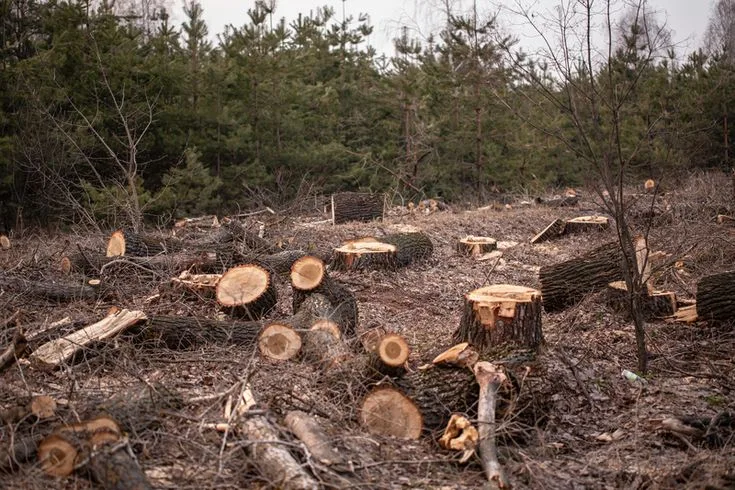

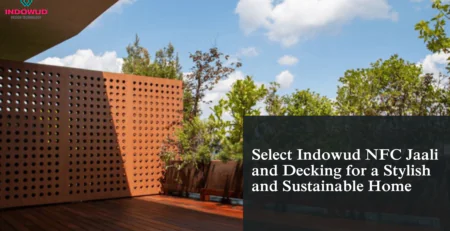

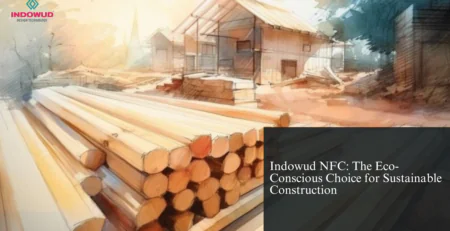
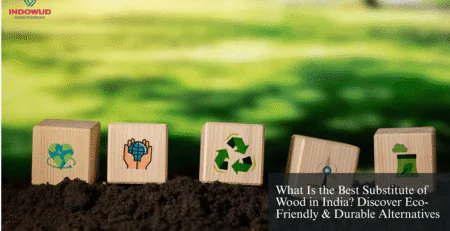
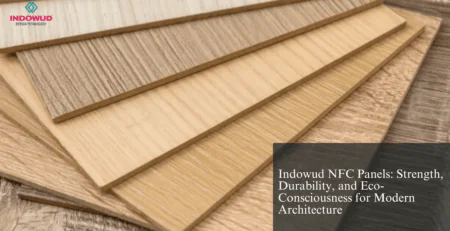

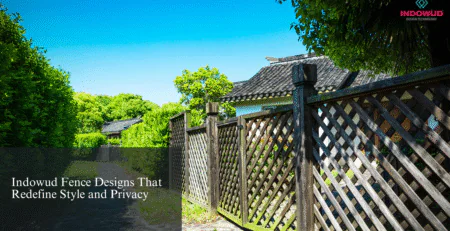
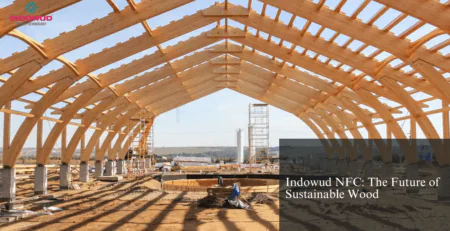
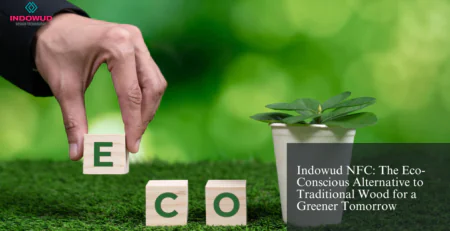
Leave a Reply